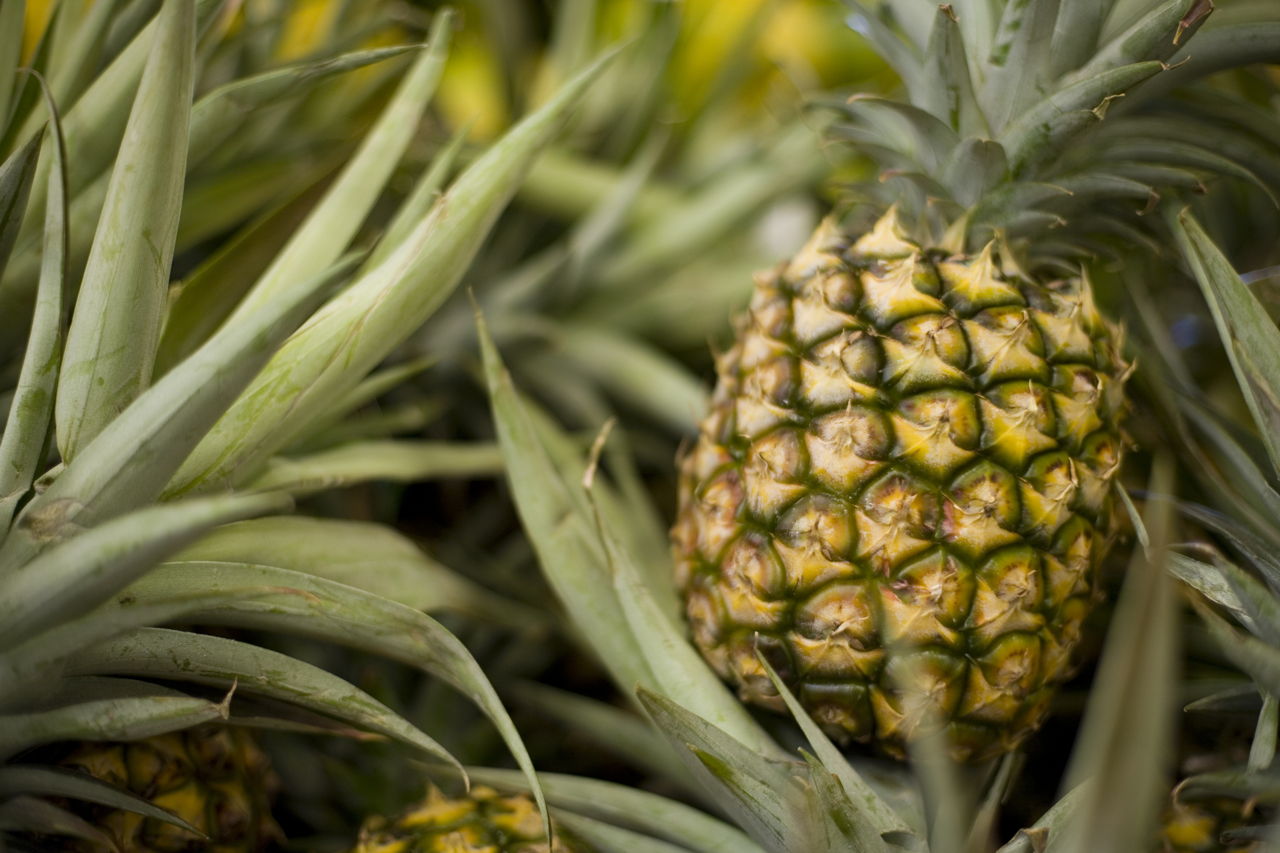
The calories in pineapple juice may vary according to how it is consumed, and of course, its serving size. This article discusses it all, and also gives you some additional info on the nutritional aspects of this juicy tropical fruit.
An amazing blend of sweetness and tartness, pineapple is one of the healthiest fruits of nature. The period from March to June is considered the season of this fruit, however, it is available all the year around on local markets. The fruit is widely used in desserts, fruit salads, yogurt, and ice cream to name a few. And the juice extracted from the fruit can be taken fresh or canned, sweetened or unsweetened, concentrated or diluted. And based on the different types, the calories in pineapple juice vary.
Pineapple Juice Nutrition Facts
# Canned, drained
The below segment provides data on the calorie count of pineapple juice based on its different forms and serving size.
| Serving Size | Calories |
| 26 g | 6 |
| 28 g | 17 |
| 100 g | 60 |
# Canned, solids and liquids
| Serving Size | Calories |
| 28 g | 17 |
| 100 g | 60 |
| 249 g | 149 |
# Unsweetened, canned
| Serving Size | Calories |
| 28 g | 15 |
| 100 g | 53 |
| 250 g | 132 |
# Unsweetened, concentrated (diluted with water, frozen)
| Serving Size | Calories |
| 28 g | 15 |
| 100 g | 52 |
| 250 g | 130 |
# Unsweetened, concentrated (undiluted, frozen)
| Serving Size | Calories |
| 28 g | 50 |
| 100 g | 179 |
| 216 g | 387 |
Benefits of Eating Pineapples
- The most important benefit of pineapple is associated with the treatment of inflammatory conditions and indigestion. Bromelain is an enzyme that the fruit contains, and this very substance has anti-inflammatory properties that aid in digestion, treat coagulation of the blood, and even reduce growth of certain types of tumor.
- Another important benefit of the fruit is its antioxidant property, due to its richness in vitamin C. Antioxidants keep the body from free radical damage, and prevent medical conditions such as atherosclerosis, heart diseases, asthma attacks, and joint pain.
- Manganese is known to be one of the important minerals required by the body for daily functioning. This mineral plays an important role in the production of energy and work done by the antioxidants. And pineapple is a rich source of the same.
- Macular degeneration is known to be a leading cause of blindness in people across the world. And one easy way to prevent this condition is a daily serving of pineapple.
- The fruit helps in the treatment of asthma, hypertension (high blood pressure), intestinal worms, and nausea/vomiting.
- Reduces risks of gingivitis and periodontal diseases.
- As it is rich in fiber, it helps in digestion, and weight loss, as well.
Here is a table based on the nutrients provided by pineapple juice. It is based on a serving size of 100 g of concentrate, unsweetened, undiluted form of the juice.
| Nutrients | Amount |
| Total Fat | 0.33 g |
| Cholesterol | 0 mg |
| Sodium | 3 mg |
| Total carbohydrate | 44 g |
| Dietary fiber | 1 g |
| Sugars | 44 g |
| Protein | 1 g |
| Vitamin A | 50 IU |
| Vitamin C | 42 mg |
| Vitamin E | 0.0 mg |
| Vitamin K | 1.0 mcg |
| Vitamin B1 (Thiamin) | 0.2 mg |
| Vitamin B2 (Riboflavin) | 0.1 mg |
| Vitamin B3 (Niacin) | 0.9 mg |
| Vitamin B6 (Pyridoxine) | 0.3 mg |
| Vitamin B9 (Folate) | 37 mcg |
| Pantothenic Acid | 0.4 mg |
| Calcium | 5.0 mg |
| Iron | 0.26 mg |
| Magnesium | 27.0 mg |
| Phosphorous | 28.0 mg |
| Zinc | 0.4 mg |
| Copper | 0.3 mg |
| Manganese | 3.4 mg |
| Potassium | 472 mg |
| Selenium | 0.4 mcg |
Apart from the above medical conditions which can be improved or prevented by pineapple juice, ailments like diphtheria, constipation, blood clots, fluid retention, sinus infections, goiter, multiple sclerosis, sore throat, and sunstroke can also be treated by this medicine provided by nature.

